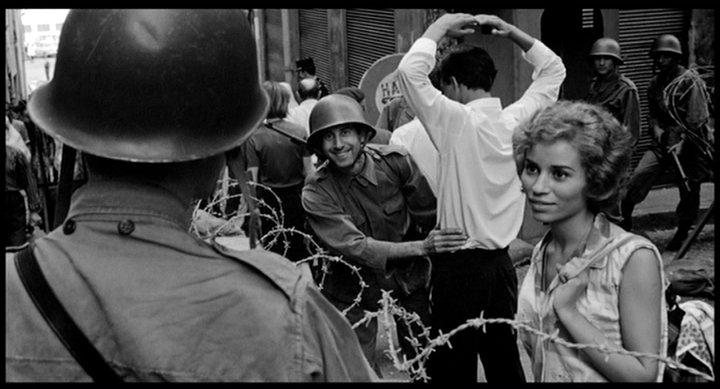Hey guys,
I wanted to start this off and say that I thought everybody’s presentations were really interesting. The variety of topics addressed and researched were pretty cool. I learned a lot about student athletes, social media literacy, the pervasive nature of sex in advertisement, and the effect of various movie trailer styles.
The topic I wanted to address specifically was the “sex sells” conversation. I thought that commercial illuminating the widespread influence of ideal body image advertising (the one with the young red haired girl) to be particularly powerful. How much do you guys think sex in advertising, specifically television commercial advertising adds to the societal pressure felt by women, specifically young women, to adhere to what society has defined as the “ideal body image”.? Probably a run on sentence, but an interesting question to ponder regardless.
On that note, I think this form of body-altering pressure stemming from television advertising is not the main contributor to this issue, but certainly a significant component. Furthermore, I think the issue is bigger than advertisements, posters, fashion shows, and clothing size inventory values in retailers. I think the influence of television shows, not particularly commercials to be a larger contributor to this issue of body image adherence. We see hundreds of attractive men and women alike in television shows as actors and actresses. Of course there are not strictly actors and actresses categorized as “beautiful” on television, but largely in part these entertainment employees are made to match these standards society has structured. We watch our favorite shows, talk about them with our friends, even watch them socially. We talk about how attractive a particular actor or actress is, or how they look in a particular outfit, or the opposite. We are identifying and comparing their body images to the “ideal” archetype culture and society has prescribed. It is from this that we are able to use words defining in any way physical traits. If we did not have this foundation, we would have no basis from which to form and then express our own opinions. This is interesting to think about. What then, would we call beautiful or inversely unattractive (physically) without an initial example or basis?
As pertinent as this foundation is to have, it is also severely damaging to individuals, as they strive through methods ranging in severity to adhere to these body image ideals as closely as possible. This “Barbie-Doll figure” for young women is the catalyst for so much stress and social hierarchical structuring throughout much of their social development (ages 6-22) vis-a-vis institutionalized education. (*Note, I am largely in part talking about America, as that is the culture I find myself within, but large portions of my arguments apply internationally) It is damaging to men and women of all ages, yet we cannot escape it. How then, can we reduce the negative social impact this pervasive body image ideal has on society?

I think that is a really interesting question about how much young girls really listen to the idea of body image from the different types of media. I think a lot of women, of all age, are greatly effected by the “ideal body image.”
I have girls cousins that are between the ages of 8-12 and they are already noticing and really paying attention to what society and media portrays as “the perfect body/look.” Eating disorders are now starting in girls who are much younger than they ever were before. And I think a great deal of those eating disorders can be attributed to the media and how the portray girls should look. Now that technology is such a major part of our culture, younger kids are gaining access to the internet which is both good and bad. The many bad effects are how kids are being taught they’re supposed to look like. Boys are being taught they need to have 6 packs and be really strong and girls are being taught they need to be skinny, have perfect skin, and long hair.
I think technology is a great part of the modern world and has provided so many helpful advantages, but with every pro there is a con. I strongly believe younger generations are being deeply effected by the media and their definition of “beautiful.”
I personally believe that sex sells- but this absolutely has an effect on young women.
For example, think of Halloween costumes for teenagers and beyond, and the models who model the costume.
Usually, boys have more violent costumes such as an “army guy”. However, when a girl wants to be a “Ladybug” think of how sexualized it is. In fact, those costumes are so unnecessarily sexualized especially for young teenagers. Actually, showing that much skin is very unnecessary (especially when it’s freezing during that time of year!) and causes the young girl to feel self-conscious of herself if she does not look like the model.
To make it worse if her friends want the costume like that she may feel as if she is not good enough, which is a horrible thought for a young girl.